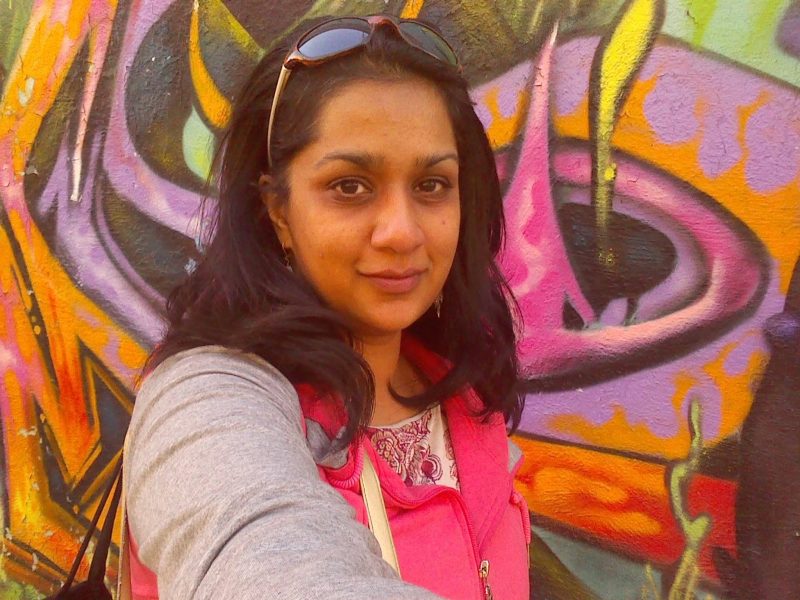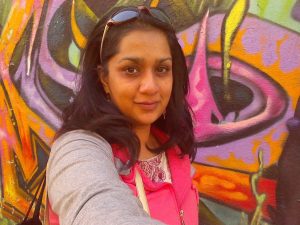I once heard a great quote: The body is a museum of everything that ever happened to it.
I once had a temporary exhibit that seemed permanent: Vaginismus, though it was years before I knew what it was called.
It was the result of an attempted rape when I was 11, and growing up with an extremely religious mother who lectured against sex. We were not even allowed to have tampons in the house because “nothing should go up there before marriage.”
Not that I knew where “up there” was. I was not allowed to go to the school’s seminar on periods in the 5th grade (the only girl not to, as was my sister, so I just felt left out.)
And no one told me at home either. I just started bleeding one day without noticing, and my mother told my sister, who is one year older than I am, to take me upstairs and give “me something” aka a maxi pad.
(A few years late, when I watched the Stephen King classic Carrie, the opening scene of Carrie having no idea what her period was and her mother’s reaction were all too familiar. I still can’t believe that I relate so well to a Stephen King story minus the telekinesis.)
Once I was 18 and on my own, I went to several OB-GYN appointments but screamed and cried when they tried to insert the speculum into me. I was scared and they had to stop. They would tell me to go home and try inserting my pinky, then two fingers, etc etc.
I would be incredulous “did that doctor just tell me to go F**K myself?” I was sure they were making fun of me and that I was the only one in the world who could not have a successful OB-GYN appointment. Never mind actual sex or a real relationship.
They never told me a name for what I had. I just think if I had a name for my condition, I would not have felt alone and would have gotten specialized help sooner.
I started searching the Internet but without a name for what I had, the searches were unfocused and there was not a lot I could find. Then one day, I saw the word “vaginismus” in an article, which also led me to an amazing book: When A Woman’s Body Says No to Sex by Linda Valins. In that book, I saw how I had vaginismus, and that my issues with holding a job, swimming and driving a car were also tied into that.
I also learned a valuable fact: almost all problems sexually are a symptom of an emotional pain, and they are more accurately called “sexual conditions” rather than “diseases” or “illnesses”. And they all have a highly successful reversal rate.
Sexual abuse is, unfortunately, a part of many women’s sexual experience — 1 in 4 women under the age of 18 are sexually abused in some way. And that’s just abuse that is actually reported.
Vaginismus occurs when the outer third of muscles surrounding the vagina tense up and make penetration difficult and/or impossible. The origins of vaginismus can be traced to many sources: a childhood home where sex was a taboo subject that was never to be discussed, messages that sex is “dirty” and “bad”, or following the dictates of a strict religion.(I had all three.)
A woman having her emotional guard up, as in the case of many survivors, can also spark the condition. Preventing penetration, even subconsciously, is a way of maintaining control, something the survivor often feels she does not have.
Vaginismus is highly reversible, with a reversal rate estimated at over 90 percent. Psychotherapy is key to helping women who suffer from vaginismus. Alerting health care professionals to ask about past abuse in a sensitive manner and referring them to the proper professionals can help her to face her fears about penetration and start exercises to control her muscles so she can allow and, more importantly, enjoy sexual intercourse.
I found the Women’s Therapy Center in Long Island from an online group on vaginismus and booked my first appointment (they had a 6 month waitng list — I was far from the only one!) Once started, my vaginismus was reversed within a week and it has never, ever come back.
I speak with other women of all ages who want to hear about my path and need encouragement. Knowing the name “vaginismus” and that someone else has had and reversed it is very powerful towards getting it reversed yourself.
I now live by another great quote: Stronger at the once-broken places.
Saima Huq, MPH is a public health researcher who has lived concurrent lives as a personal trainer, print model, zoo tour guide, and the founder and producer of Always Love Lucy Theatre, which stages classic plays featuring people previously marginalized on stage. She has been to 30 countries, most recently traveling alone across Guatemala and Belize. She lives in New York City. Saima can be found on Twitter.









Leave A Comment